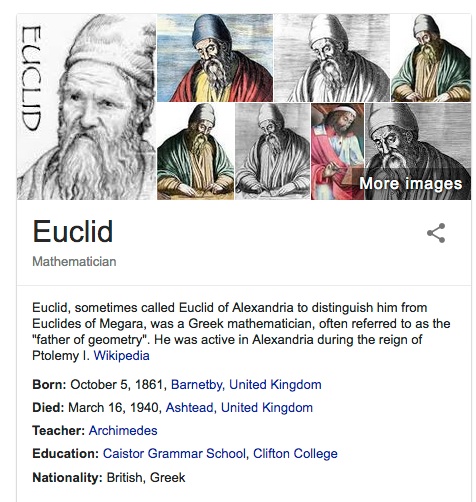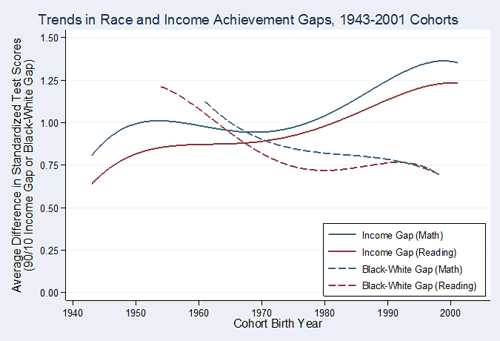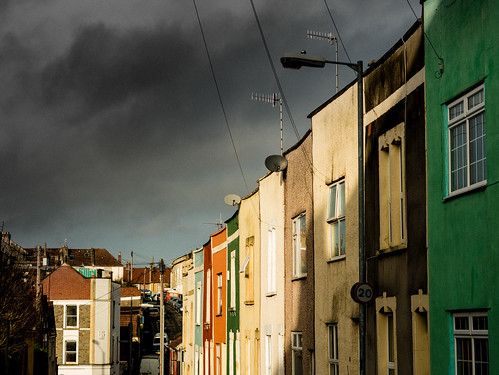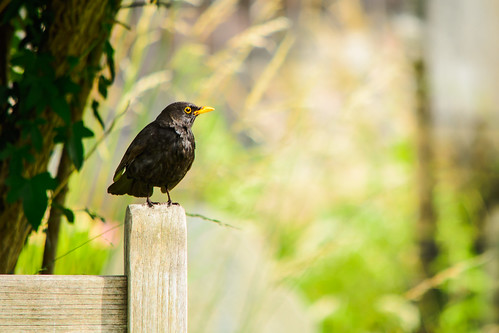by Chris Bertram on December 18, 2016
An open thread for commenters to recommend their favourite books of 2016.
I’ll start with Lynsey Hanley’s *Respectable* (Allen Lane).
Trying to understand my country in the light of the EU referendum vote, I picked up a copy of Lynsey Hanley’s *Respectable: The Experience of Class*. I’m glad I did. Hanley is now an academic at Liverpool John Moores and lives a life shaped by the culture and expectations of Britain’s middle class, nourished, as she explains, by a diet based on mackerel and pulses. But this isn’t where she started. Life began on a vast working-class estate on the edge of Birmingham, Chelmsley Wood, a place to where many families had been decanted as part of the post-war social democratic experiment, and where they’d stayed. The book is about social class and social mobility, about getting from there to here, and about the “walls in the head” that make the transition a matter of profound anxiety and which stop many people from leaving at all. It is also about divisions within the working class, between those who cope with their subordinate status by keeping up appearances, and those who don’t, between those who read the Mirror and those who read the Sun. As Hanley puts it in the introduction: “Changing class is like emigrating from one side of the world to the other, where you have to rescind your old passport, learn a new language and make gargantuan efforts if your are not to lose touch completely with the people and habits of your old life.”
by Chris Bertram on December 18, 2016
by John Q on December 17, 2016
Here’s another excerpt from my book-in-progress, Economics in Two Lessons. Rather than work sequentially, I’m jumping between:
Lesson 1: Market prices reflect and determine opportunity costs faced by consumers and producers.
and
Lesson 2: Market prices don’t reflect all the opportunity costs we face as a society.
In the section over the fold, I’m looking at monopoly and regulation. Next up, public ownership.
As usual, praise is welcome, useful criticism even more so. You can find a draft of the opening sections here.
[click to continue…]
by Harry on December 16, 2016
Well, the big news is that the new Tana French (The Trespasser ) and the new Peter Robinson (When the Music’s Over
) and the new Peter Robinson (When the Music’s Over ) are both out and both brilliant.
) are both out and both brilliant.
Now to the East Coast; a study in contrasts. First we have Elly Griffiths’ Ruth Galloway novels. The heroine is an archeologist at what seems like a rather shambolic new University on the Norfolk coast; her cases all involve old bones of some sort, but the murders are, mostly, reasonably recent. The world is about as cozy as you’ll find in new crime fiction; people basically like each other though you may not like the central cop, a self-absorbed Lancastrian who is partly redeemed for the reader by the mysterious liking that an oddly named Druid who works in a technical capacity at the University (yep) has for him. The plots are satisfying, the writing fluent, the characters predictable but (with the exception of the cop) broadly likeable. They’ll each take you a few hours to read — frivolous fun, like a Cosmo. Warning (which MIGHT be a minor spoiler): as with Sophie Hannah, but more so, the first book will make you anxious that the supernatural is going to play some sort of explanatory role — its ok, it doesn’t. Start with The Crossing Places  .
.
David Mark’s Detective Sergeant Aector McAvoy books do not resemble a cosmo at all. Set in Hull, they are as dark as you imagine the worst winter day being there — in fact, I only know Hull through these novels, and I don’t think that I have once imagined sunshine there. It’s noir, without relief. The villains are evil and ruthless and some of the cops no better. McAvoy starts the series as an officer suffering the consequences of whistle-blowing on some sort of corruption in the force. He’s lucky to be under the protection of a capable senior officer, Trish Pharaoh, and also to have a spouse who is (I think implausibly) adoring and understanding. But the plots are satisfying, and after the first novel, The Dark Winter , McAvoy grew on me quite a bit. Through several of the novels we see the emergence of a shadowy and apparently invincible organized crime syndicate, which Pharaoh and McAvoy are required to deal with, if not defeat. Mark is excellent with minor characters and subplots, and presents a world which, despite (or maybe because of) the prevalence of evil, is much less black and white than most crime writers prefer. Highly recommended if you have a reasonable tolerance for particularly vicious murders.
, McAvoy grew on me quite a bit. Through several of the novels we see the emergence of a shadowy and apparently invincible organized crime syndicate, which Pharaoh and McAvoy are required to deal with, if not defeat. Mark is excellent with minor characters and subplots, and presents a world which, despite (or maybe because of) the prevalence of evil, is much less black and white than most crime writers prefer. Highly recommended if you have a reasonable tolerance for particularly vicious murders.
IS there a series set in Lowestoft? Or Southwold?
by John Holbo on December 16, 2016
“Holding with Haeckel that all life is a chemical and physical process, and that the so-called “soul” is a myth …”
– H.P. Lovecraft, “Herbert West – Reanimator”
Years ago I made a parody Christmas book mash-up of Lovecraft/Haeckel/Clement Clark Moore. I called it Mama In Her Kerchief and I In My Madness: A Visitation of Sog-Nug-Hotep. I made print versions but then took them down (they weren’t quite it.) Yet it lived, lurking beneath the surface, in the form of a perennially popular pair of Flickr albums and this old Hilo post. Hidden, winter sun-dappled tide pools of hideous, unfathomable, happy depths for kiddies to dip their toes in! But 2016 is the year of fake news. You can’t spell ‘fake’ without the ‘Haeckel’. So my fraudulent yet innocent concoctions have wandered and, eventually, been mistook for genuine Victoriana. Oh, well. I can’t completely blame them. Real Victorian X-Mas cards are often dark and weird. Hence the joke.
Caliginous gloom is the best disinfectant. If, as some whisper, ‘even death may die’, then perhaps it is possible to quash a rumor that Haeckel actually designed X-Mas cards. Accordingly, I have seized the seasonal opportunity to republish and set the record straight. A new, improved version of the print edition is now on Amazon! It is also available on Kindle. Somehow Amazon not seen the connection yet, but I imagine that will resolve itself. (Also, I made slightly different covers for the two editions. Which do you prefer?)
For impoverished urchins, with nary a penny to spare, yet high-speed internet access, I have updated the Flickr galleries with some higher quality images. The old ones were skimpy. My most popular images, Blue Boy and Feeding Birdies, are available in larger sizes. Some others, including several of my favorites. (Maybe I’ll get around to doing all of them. But not today.)

[click to continue…]
by Chris Bertram on December 13, 2016
The world is watching the denouement in Aleppo, with stories emerging of massacres, particularly of young men (and probably by young men). A [story I read from Patrick Cockburn in the Independent](http://www.independent.co.uk/voices/aleppo-fall-latest-syria-civil-war-bombardment-bashar-al-assad-rebels-advance-a7470716.html) reported that such is the shortage of manpower for the Syrian army that other young men, emerging from eastern Aleppo, are being immediately conscripted into the Syrian army. A Syrian refugee I heard speaking the other day said there was no choice but to leave because you would either be killed, or you would be forcibly enlisted and forced to kill others. And many of the young Eritreans who find their way to Europe are also fleeing conscription (they face indefinite military service). This is hardly a new thing. The last major exodus of Americans fleeing the jurisdiction of their state was of young men who were evading the Vietnam draft.
James C. Scott, in his wonderful [*The Art of Not Being Governed*](http://yalebooks.com/book/9780300169171/art-not-being-governed) writes of state conscription as one of the main reasons why the subjects of states flee to the hills, to a zone outside of state control. There are few such zones today, and those that there are may be governed by forces even less appealing that the states that conscripts are fleeing from.
This all got me thinking about some of the media narrative on refugees over the past few years. The preponderance of young men has been treated by those who want to keep refugees out as a reason for suspicion. The “genuine” refugees for the newspaper columnists are mothers and children. It is the toddler drowned on the beach, like Aylan Kurdi, who elicits public sympathy. But young men are often the ones with most reason to flee. It is they who face the starkest choice between killing and being killed. No wonder they predominate.
by Chris Bertram on December 11, 2016
by Harry on December 10, 2016
I’m a pretty enthusiastic fan of Simon Brett’s Charles Paris mysteries — they are light, charming, and funny, rather like Simon Brett, if a little bloody and boozy (which, for all I know, Simon Brett is too) Decent Interval , his comeback appearance, is a good place to start.
, his comeback appearance, is a good place to start.
The Charles Paris Mysteries on the radio, however, are simply exquisite. Bill Nighy is, as you’d expect, brilliant as the down-at-heel irresponsible, formerly philandering, lush. Jon Glover is hilarious as his neglectful agent, and Suzanne Burden makes his long-suffering estranged wife with whom he often lives as believable as anyone could. The scripts are terse, witty, and filled with in-jokes (I love his ring tones for his wife and Maurice, his agent). And, as in the books, nobody seems to have noticed the a very large fraction of all the murders in the UK seem to have happened with Paris in the next room. Radio 4’s Christmas present to us all is The Cinderella Killer. I haven’t listened to it yet, because they only just broadcast episode 2, and my preference is to wait for them all, and then binge (its only two hours — I’ll listen while shoveling snow some day). But I guarantee it will be perfect.
Oh, and incidentally, what is going on with Brian Protheroe? He seems to be in everything on the radio these days. When’s the next album coming out? Has anyone other than me heard of him?
by Harry on December 9, 2016
The first time I was arrested, I had to cancel a meeting with one of my professors The police officers who arrested me had given me a beating between the arrest and the processing (in the van — this was 1985 during the Miner’s Strike, and police officers felt a fairly general permission to be fairly randomly violent to arrestees; they put the boot in while openly concocting the false stories they were going to tell about us). I was let out of Bow Street Station at 3 am, so that I could not get back to Herne Hill. In the morning I walked from the house of the friend I had woken at 4 to give me somewhere to sleep to campus, and informed my professor that I wasn’t going to be in a great condition to meet, and asked if we could postpone. He immediately asked what he could do to help, and asked whether he could testify at my trial (which he duly did, story here; great hilarity ensued). Some might call that coddling I guess, but it meant and still does mean a huge amount to me, and I always do the same (even if the charge is not related to politics and, to be clear, although I probably have some limit, I would support students who were arrested in causes I disagree with; something not at all unlikely to come up because by and large students don’t know my politics).
Knowing about this, a colleague (different college, different state) called yesterday to ask my advice. One of her students, an 18 year old African American woman, was arrested at an anti-Trump demonstration. This is in LA (I’ve also been beaten up by cops and arrested there! Thrill a minute, my life. Story here). Much of the charge sheet is illegible but it is a misdemeanor, and what I can make out is “Willfully and maliciously obstructing free movement or [illegible] for others public [illegible]’. The hearing is next week, and apparently neither the protest organizers nor the college have provided legal support. I’m trying to find my one lawyer acquaintance in LA with relevant experience (of the two lawyers who have worked for me, one is a judge, and the other is a labor lawyer and too fancy and famous for me to feel comfortable approaching him). In the meantime though — my colleague plans to attend the hearing with the student, and to record it and take notes. My advice is to ensure that 2 or 3 other students come along for support (it is enormously more tolerable to go through these experiences with support from friends than alone). But — should the student have a lawyer present? And if so, any suggestions of where to find one? (Again, its LA).
by John Holbo on December 9, 2016
Google Euclid:

It would seem that this is the wire that has gotten crossed.
by Eric on December 8, 2016
Dear unhappy voters of 2016:
We keep hearing you called populists and, to put it in your vernacular, you had one job and you’re doing it wrong.
[click to continue…]
by Harry on December 8, 2016
https://www.youtube.com/watch?v=JPm6CheT6rs
by John Holbo on December 8, 2016
Just like dog is the opposite of cat.
Years ago – don’t know why I remember – I posted about how some bands are loved, some bands are popular, even influential, without being heavily imitated. I put forth Steely Dan as a paradigm of a popular, influential band that isn’t imitated. I posited that it’s kind of hard to imitate them. (By contrast, The Velvet Underground is the band that sold a thousand records and started 10,000 bands.) That’s why I was interested when Apple Music offered, this afternoon, a playlist of “Inspired By Steely Dan” tracks. Further, the list promises to pass over “the yacht rock years” – so you can just put 10CC “I’m Not In Love” back where you found it!
Joe Jackson, Kanye West, Phoenix. When Ian Dury and the Blockheads came on I almost laughed out loud.
Here’s the list. How do you rank them? Slickeriness is not necessarily next to Danliness. Just putting an ooze of lounge jazz sleaze in there is not sufficient either, is it? (But it’s kind of hard to say. It’s kind of like trying to be influenced by British music hall tunes from the 40’s without being influenced by the Beatles. Logically, it should be possible, but, in practice, is it?) [click to continue…]
by Harry on December 7, 2016
In the light of the discussions of charter schools in the poss below, and given that I attended a graduate seminar of education policy students last night at which none of the students had read it, it seems worth re-drawing your attention to Greg Duncan and Richard Murnane’s edited volume Whither Opportunity?: Rising Inequality, Schools, and Children’s Life Chances . Its already 5 years old, but it is really a brilliant achievement, drawing together numerous experts (if we’re allowed to listen to experts any more) with the task of summarizing everything we know about the relationship between economic inequality and educational disadvantage in the US. The take home is fairly simple: there’s a very strong relationship between economic inequality and educational disadvantage and after reading the whole book you might still believe (as I do) that it is possible to improve educational outcomes for poor children through improved schooling but you cannot believe that we could get large changes in outcomes without corresponding changes to the environments poor children grow up in — which would require massive reductions in both inequality and poverty.
. Its already 5 years old, but it is really a brilliant achievement, drawing together numerous experts (if we’re allowed to listen to experts any more) with the task of summarizing everything we know about the relationship between economic inequality and educational disadvantage in the US. The take home is fairly simple: there’s a very strong relationship between economic inequality and educational disadvantage and after reading the whole book you might still believe (as I do) that it is possible to improve educational outcomes for poor children through improved schooling but you cannot believe that we could get large changes in outcomes without corresponding changes to the environments poor children grow up in — which would require massive reductions in both inequality and poverty.
I think its fair to say that the headline study was Sean Reardon’s finding that the achievement gap (measured by standardized tests) between rich and poor students has increased during the same 50 years during which the black-white achievement gap has decreased, as shown in the following graph:

Other findings include Meredith Phillips’ finding that between birth and age six, wealthier children will have spent as many as 1,300 more hours than poor children on child enrichment activities such as music lessons, travel, and summer camp, and the contribution by Waldfogel and Magnusson showing that the gap in ‘enrichment spending’ between rich and poor has expanded massively in the past 40 years — and that affluent families spend more than $8000 a year per child on enrichment activities. A child from a poor family is two to four times as likely as a child from an affluent family to have classmates with low skills and behavior problems – attributes which have a negative effect on the learning of their fellow students, and the rich=poor achievement gap in k-12 is accompanied by a growing income-based gap in college completion.
One of the studies shows that local job losses can lower the test scores of students with low socioeconomic status, whether or not the students’ parents have suffered the job losses; another that and students learn less math if they attend schools with high student turnover during the school year (one count against school choice, but also against allowing landlords to evict tenants with children mid-year).
Of course, to most readers none of these finding will be shocking (though, the Reardon finding is quite noteworthy). But they are worth bearing in mind. I am startled by local school officials for example, who say that citing poverty as a reason for low achievement is an ‘excuse’, and also by academics in education I come across who are reluctant to admit that poverty has seriously detrimental effects on the poor and the ability of poor children to learn (if poverty doesn’t have bad effects on those who are subject to it, elminating it might still be nice but doesn’t seem morally as urgent as it, in fact, is). As I say, I’m only mentioning Whither Opportunity again now after meeting a whole group of grad students who are concerned with educational inequality and didn’t know of it, and being prompted by the discussions of charter schools. Also I’d recommend going to Leo Casey’s comment on one of the threads which gathers together some other useful links.
by Harry on December 5, 2016
The thread following Henry’s post responding to Tyler Cowen’s comments about school choice reminds me that people might find this site — Charter Schools in Perspective — useful. It contains valuable and well contextualized summaries of the basic facts on the ground and of the research as of about a year ago, and resources for journalists, academics, and the general public who want to know more. It emerged from a project that I was involved with (along with one of our occasional commenters Leo Casey) a couple of years ago, supported by the Spencer Foundation and Public Agenda. Maybe it would be helpful for the incoming Secretary in the Department of Education.




